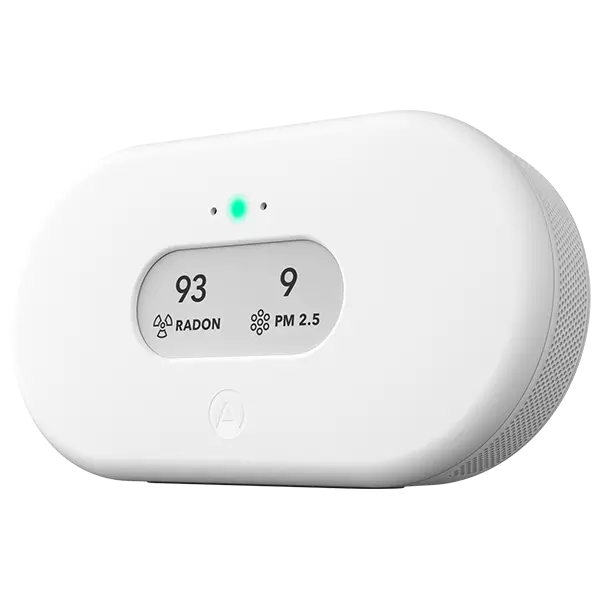Guest writer Amy Fletcher offers insight into the radon risks specific to the United Kingdom. Amy is a freelance writer and researcher with a keen interest in health. She has written for various health and lifestyle websites over the years and enjoys sharing her knowledge to boost awareness of important health issues. When she's not writing, she enjoys long walks with her daughter and two dogs.
Wales and the South-West of England are at risk of being exposed to high-levels of radon, according to a radiation map released by Public Health England. Other parts of the country most likely to be exposed include Cumbria, Newcastle, and Northumberland, while, areas in Scotland and Northern Ireland are also under threat. Similarly, the Cotswolds was recently dubbed a radon hotspot. But what do these potential high levels of radon mean for individuals living in these areas and should they be taking action to protect their homes?
Why are some parts of the UK at greater risk of radon exposure?
As radon is a naturally occurring gas which is the result of uranium 238 from the Earth’s crust decaying, we are all exposed to it on a daily basis. This isn’t a problem when it’s inhaled in the open air but it can pose a health risk when it seeps in through holes, cracks, and windows in the nation’s homes. Properties in the South-West are particularly vulnerable to this as high levels of radon are in the region due to the large amounts of granite that can be found there. Similarly, the other areas of the UK highlighted by Public Health England are exposed to higher levels of radon due to the type of soil and rocks in the ground which properties have been constructed on.
Radon gas & lung cancer
While radon poses little threat in an open space, it can do significant damage to your health if it’s in your home over a long period of time. Cancer Research reports that 4% of the lung cancer cases diagnosed each year are linked to the inhalation of radon gas. Radon contributes to lung cancer as the particles of radon are radioactive and it’s this that can cause damage to the lining of the lungs. With this in mind, you’ll want to ensure that your home is safe and free from as much radon as possible.
Should homeowners consider moving?
As radon increases an individual’s likelihood of developing lung cancer, people living in the high risk areas highlighted by Public Health England may be feeling concerned and even thinking about moving to a lower-risk region. However, it’s important to remember that no matter where in the UK you live, radon gas is present. Instead, it’s much more practical to stay put, to determine whether there are high levels of radon in your existing home, and to then take steps to reduce it.
One of the most common areas of the home for radon to seep into is the basement. This is because of how close the basement is to soil and natural matter which contains radon gas. Halifax reports that there has been a 183% increase in the number of British homeowners applying to extend their homes and create a basement. One of the most popular uses for a basement at present is as a ‘man cave’. This is a place for the man of the home to kick back and relax with a games console and to display his treasured sports and movie souvenirs. As basements are highly susceptible to radon gas, it’s highly recommended that homeowners utilize radon detectors in their basements to keep an eye on the levels within the room and to minimise the chances of developing lung cancer.
Regional comparison
If you are still wondering whether moving to a lower-risk area is worth it, you should consider how lung cancer impacts the nation as a whole. Despite radon’s close link to lung cancer, a detailed review by the British Lung Foundation of lung cancer cases diagnosed between 2004 and 2012 found that the South West had one of the lowest total number of cases. Whereas, Scotland and London had significantly higher cases during the eight-year period than the rest of Britain. Historically, Scotland has one of the worst rates of lung disease in Britain. The Scottish Public Health Observatory states that 5331 Scottish nationals were diagnosed with lung cancer in 2017. This figure equates to almost 14% of all cases diagnosed in Britain.
Interestingly, a report from Cancer Research UK reveals that individuals living in the North-East are most at risk of developing lung cancer, with 112.2 people per 100,000 being diagnosed with the disease. Also high on the list is the North-West at 101.1 cases per 100,000 people, and Yorkshire and Humber at 95.1. In comparison, it was revealed that the South-West of the country has the lowest incident rate at just 65.9 per 100,000 members of the population.
What does this mean for the nation?
While facts and figures suggest that lung cancer across Britain is the result of a number of factors, you should not rule out the impact that radon can have on your health. Regardless of whether you live in what is deemed as a ‘high-risk’ or ‘low-risk’ radon exposure area, you should still take steps to safeguard your home, your family, and your health. Products such as the Wave are easy to install and allow you to monitor and keep track of the radon in your home over the course of weeks, months, and even years. This is ideal as Public Health England recommends conducting a three-month radon test in your property as minimum, in order to get a clear and accurate set of results. If worrying levels of radon are found, you can then take swift action to reduce the amount of it in your home by:
- Checking for and sealing up holes and cracks in your home’s foundations
- Regularly opening windows and doors, and;
- Installing vent pipes
- Monitoring radon to ensure levels stay low
Individuals living in certain parts of the country may be feeling concerned by the latest information from Public Health England on radon levels in the UK. However, while research shows that it is linked to lung cancer, the disease isn’t highly prevalent in the South-West, which is one of the worst areas for radon. This, therefore, highlights that it’s important to take precautions against radon regardless of where in the country you live.
For thousands of radon sensors from around the world, sourced from live data, broken down by location, visit radonmap.com
Sources:
Extensively Reviewed
https://extensivelyreviewed.com/create-the-perfect-man-cave
The Express
https://www.express.co.uk/news/uk/1146964/uk-radiation-map-radon-map-public-heath-england
Cotswold Journal
https://www.cotswoldjournal.co.uk/news/11630504.cotswolds-declared-a-radon-gas-hotspot/
Science Direct
https://www.sciencedirect.com/topics/earth-and-planetary-sciences/uranium-238
UK radon
https://www.ukradon.org/information/ukmaps
British Lung Cancer
https://statistics.blf.org.uk/lung-cancer
The Sun
https://www.thesun.co.uk/living/2670910/lung-cancer-map-north-east-rate-diagnosis/
UK Radon
https://www.ukradon.org/information/measuringradon
The Guardian
https://www.theguardian.com/money/2017/aug/23/underground-basements-halifax-loft-conversions-extend-properties
Cancer Research UK
https://www.cancerresearchuk.org/about-cancer/causes-of-cancer/air-pollution-radon-gas-and-cancer/can-radon-gas-cause-cancer>
Scottish Public Health Observatory
https://www.isdscotland.org/Health-Topics/Cancer/Cancer-Statistics/Lung-Cancer-and-Mesothelioma/
https://www.scotpho.org.uk/health-wellbeing-and-disease/cancer-lung/key-points/
Radonmap
https://radonmap.com/












%20(1).webp)

%20(1).webp)
